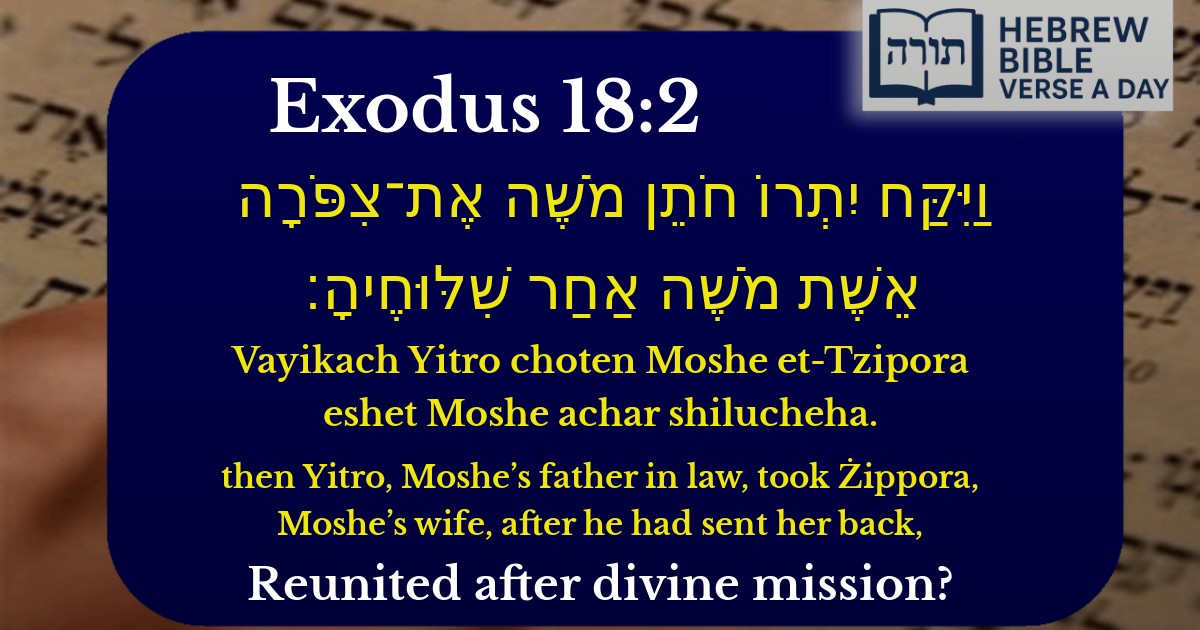Join Our Newsletter To Be Informed When New Videos Are Posted
Join the thousands of fellow Studends who rely on our videos to learn how to read the bible in Hebrew for free!
Hebrew Text
וַיִּקַּח יִתְרוֹ חֹתֵן מֹשֶׁה אֶת־צִפֹּרָה אֵשֶׁת מֹשֶׁה אַחַר שִׁלּוּחֶיהָ׃
English Translation
then Yitro, Moshe’s father in law, took Żippora, Moshe’s wife, after he had sent her back,
Transliteration
Vayikach Yitro choten Moshe et-Tzipora eshet Moshe achar shilucheha.
Hebrew Leining Text
וַיִּקַּ֗ח יִתְרוֹ֙ חֹתֵ֣ן מֹשֶׁ֔ה אֶת־צִפֹּרָ֖ה אֵ֣שֶׁת מֹשֶׁ֑ה אַחַ֖ר שִׁלּוּחֶֽיהָ׃


Understanding the Verse
The verse states: "וַיִּקַּח יִתְרוֹ חֹתֵן מֹשֶׁה אֶת־צִפֹּרָה אֵשֶׁת מֹשֶׁה אַחַר שִׁלּוּחֶיהָ" ("Then Yitro, Moshe’s father-in-law, took Tzipporah, Moshe’s wife, after he had sent her back"). This passage raises several questions regarding Moshe's separation from his wife and Yitro's role in reuniting them.
Rashi's Explanation
Rashi (Shemot 18:2) explains that Moshe had sent Tzipporah back to her father, Yitro, before the events of Yetziat Mitzrayim (the Exodus from Egypt). This was either due to:
Midrashic Insights
The Midrash (Shemot Rabbah 4:4) elaborates that Yitro took Tzipporah and their two sons, Gershom and Eliezer, to reunite with Moshe after hearing about the miracles of the Exodus and the splitting of the Red Sea. This act demonstrated Yitro’s recognition of Hashem’s greatness and his desire to join Bnei Yisrael.
Rambam's Perspective
Rambam (Hilchos Melachim 8:2) discusses the principle of a leader’s obligations to his family and nation. Moshe’s temporary separation from Tzipporah may reflect his total dedication to leading Klal Yisrael during critical moments, while Yitro’s later reunification of the family underscores the importance of familial bonds even amidst national leadership.
Halachic Implications
The Gemara (Yevamos 62a) discusses the balance between marital obligations and Torah study or leadership. Moshe’s actions highlight that while spiritual responsibilities are paramount, family unity remains essential—hence Yitro’s role in restoring Tzipporah to Moshe after the Exodus.